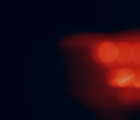Event Info
Shock Corridor Cinema: The Lost Films of Egoyan and Cronenberg
The Lost Films of Atom Egoyan and David Cronenberg.
@the fifty fifty arts colle...
 9:00pm
9:00pm
 $2
$2
Artists
Shock Corridor Cinema: The Lost Films of Egoyan and Cronenberg
Event Description
The Lost Films of Atom Egoyan and David Cronenberg.
@the fifty fifty arts collective
2516 Douglas (at bay st.)
$2
Perhaps the two forerunners to place English speaking Canadian narrative cinema on the international stage. Both Atom Egoyan and David Cronenberg share a preoccupation with what Katherine Monk calls �the negative space� of Canadian film themes. Monk suggests Canadian identity in film is one that has recently become synonymous with dislocation, a notion informed by absence as characters attempt to recover something missing from themselves through tense and problematic relations with the outside world. Egoyan�s features have illustrated a preoccupation with technology as mediation: the site of recovering lost communication, sexual desire, and loved ones. For Cronenberg, it is often science or the body which displays an unsettling portrait of appearances and our nation�s relationship with the Other (both within ourselves and our relationship with the US) which appears at the heart of many of his films.
The films presented in tonite�s screening provide a rare glimpse into these filmmaker�s early creative processes; shorts and features that predated many of their commercial releases but nonetheless forecast the concerns and aesthetics we would come to know from both artists.
Peep Show (1981; 7 min.)
In this seven-minute film, images which interfere with expectations prove to be a disruptive force. A man enters a private booth in a sex store for a quick turn-on, only to be shown pictures of himself. He becomes aggravated by what he sees, even with the additional imagery of a woman undressing.
Howard In Particular (1979; 14 min.)
Made during his first year in college, the central event in this fourteen-minute film is the dismissal of a longtime employee of a fruit cocktail manufacturer. The film serves as a precursor to Egoyan's later work in which the presence of technology plays so important a role. In it, the company uses a tape recording to inform the worker of his fate. Atom himself portrayed the faceless corporate voice on the tape. Howard In Particular was screened and won an award at the Canadian National Exhibition film festival.
Episode 4: En Passant (1992; 15 min.) In French and English w/ English subtitles.
This segment is Atom's contribution to Montr�al vu par . . . six variation sur un th�me, a compilation of shorts by different directors made as a tribute to the city of Montreal. In English, the anthology is known as Montreal Sextet. Egoyan's episode is entitled En Passant, which translates to "while passing". It concerns the activities of a Customs Official and a newly arrived visitor to Montreal. The visitor becomes the subject in one of a series of drawings by the official, and the two almost encounter each other while the visitor explores the sites of the city.
Bach Cello Suite #4: Sarabande (1997, 55min)
Starring: Yo-Yo Ma, Lori Singer, Arsinee Khanjian, Don McKellar, George Sperdakos, Jan Rubes
Egoyan's contribution to Inspired By Bach, a series of six films conceived by cellist Yo-Yo Ma collaborating with different artists to explore new interpretations of the six Bach Cello Suites. In Sarabande, Yo-Yo Ma (playing himself) arrives in Toronto, amidst a certain amount of confusion, to perform in concert and teach a master class. In various time frames, parallel story lines develop involving a dying physician, the young female doctor taking over his practice, the old doctor's real estate agent, her boyfriend, Yo-Yo Ma, and his limousine driver. The characters come into contact with Bach's suite at various times and under different circumstances. All of them experience an emotional transformation, related to the depth of their relationship with the music and each other.
Crimes of the Future (1970, 65min.)
Starring: Ronald Mlodzik, Tania Zolty, Jon Lidolt, Jack Messinger.
Made on a $20,000 budget, David Cronenberg's second feature film, Crimes of the Future, bears a strong similarity to his first outing, Stereo, produced the year before. Cronenberg's obsession for such matters as bodily mutation and grotesque growths, aberrant medical experiments, massive plagues and futuristic architecture are all here in a convoluted look at a future gone perverse. With hindsight, we can see many Cronenberg strategies and themes here in embryo: deliberately tasteless satire, the moral corruption of society, human metamorphosis at the heart of the argument, and the contrast of sterile settings with ravages and mutations of the flesh. The film is set in a near future where humans are devolving and all women of child-bearing age have been killed by an epidemic spread through a cosmetics additive created by a mad dermatologist (in the House of Skin), thus making procreative pedophilia a likely "crime of the future" and putting a 5-year-old girl (Zolty) at the center of this subtly layered narrative.
thefifty_fifty@hotmail.com
www.thefiftyfifty.org
Venue
2516 Douglas Street
Open / Operational
